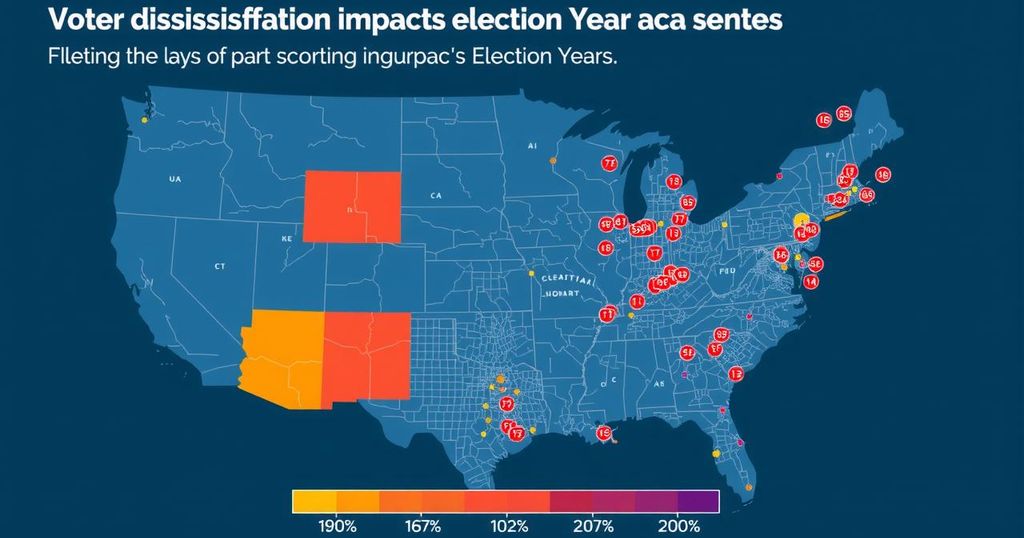The year 2024, termed the ‘super year’ of elections, has seen widespread voter backlash against incumbents globally, driven by lingering economic discontent post-COVID-19. This pattern indicates significant political volatility across various nations, with established parties facing unprecedented electoral challenges. Notably, Donald Trump’s recent election victory underscores a broader trend of discontent with political elites and raises critical questions about the future of democratic governance as voter expectations evolve.
The year 2024 has emerged as a significant period for electoral turnover, with incumbent governments across the globe facing substantial voter backlash. This pattern, termed the “super year” of elections, highlights how citizens, regardless of political ideology or tenure in power, have expressed discontent through the ballot box. A noteworthy example is Donald Trump’s recent ascent to the presidency, marking a shift in an election cycle characterized by widespread challenges to incumbent parties in approximately seventy nations, reflecting broader societal disillusionment post-COVID-19. The factors behind this trend include economic hardships, inflation, and lingering frustrations stemming from the pandemic, which have collectively bred dissatisfaction with political elites. Richard Wike from the Pew Research Center noted that many voters perceive political leaders as increasingly out of touch. Moreover, the drastic outcomes in various countries exemplify a growing trend of replacing longstanding ruling parties with newer, often opposition entities. This shift invites a deeper exploration into the implications of such electoral behavior on global governance. Collectively, the events of this year present an alarming indicator of political volatility, extending beyond merely national politics. In the United Kingdom, the Conservative Party experienced its least favorable electoral results in nearly two centuries. Similarly, Emmanuel Macron’s government bore the brunt of a far-right challenge in France, while incumbent parties throughout Europe faced diminishing returns at the ballot. Additionally, emergent patterns in Asia and Africa reflect a corresponding wave of anti-incumbent sentiment, with countries like India and Japan experiencing significant losses among ruling conservatives. In South Africa, the African National Congress, once a steadfast ruling party, has also seen its majority erode, triggering a coalition government. The rise in disillusionment is visibly mirrored in nations with established democratic frameworks, necessitating an evaluation of voter priorities which have shifted notably since the era of decolonization and the end of apartheid. Nevertheless, not all regions have yielded to this anti-incumbent wave; Mexico stands as a notable exception, maintaining political continuity through the election of Claudia Sheinbaum, a member of the outgoing president’s party. However, leaders in contested regions have quickly discovered that initial public approval can diminish rapidly. Overall, the current political landscape underscores a significant challenge facing incumbents worldwide. If voters maintain a penalty-oriented perspective towards elected officials, it raises critical questions about the stability of democratic institutions and electoral accountability. As noted by Rob Ford from the University of Manchester, the swift judgment rendered by voters complicates the relationship between government performance and public satisfaction, indicating a need for careful deliberation about the future of representative governance globally.
The article explores the global trend of electoral changes resulting in significant losses for incumbent political parties, termed the ‘super year’ of elections. It identifies various factors contributing to widespread voter dissatisfaction, including economic challenges following the COVID-19 pandemic, inflation, and a sense of alienation from political elites. This discontent has prompted a wave of anti-incumbent sentiment across various regions, affecting elections in numerous countries, from Western democracies to South Africa and Asia. As governments struggle to address these public grievances, the implications for political stability and voter priorities become increasingly apparent.
In conclusion, the phenomenon of the 2024 elections illustrates a stark pattern of voter discontent resulting in a repudiation of incumbents across the globe. Factors such as economic instability and lingering frustrations from the pandemic are driving this trend, prompting significant shifts in political power dynamics. As societies adapt to new challenges, the repercussions for governments highlight the necessity of addressing the electorate’s concerns, lest they face similar electoral punishments in the future. This era of volatility calls for a reconsideration of governance strategies to address the burgeoning disconnect between political leaders and the citizens they serve.
Original Source: apnews.com






